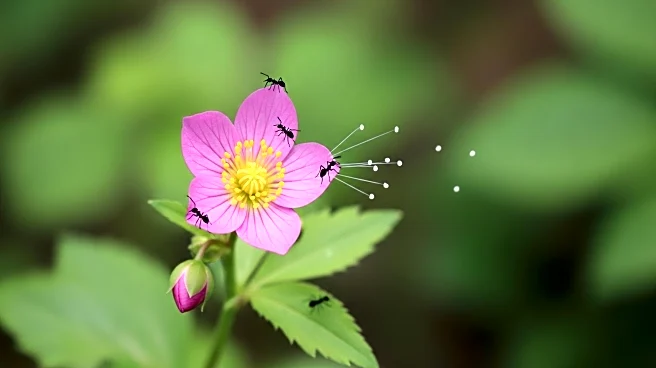What's Happening?
Researchers in Japan have discovered a unique plant species, Vincetoxicum nakaianum, that attracts pollinating flies by mimicking the odour of half-eaten ants. This dogbane species, native to Japan, uses a scent similar to the alarm pheromones released by ants when attacked by predators, such as spiders. The scent attracts fruit flies, which help in pollination as they search for injured ants. Botanist Ko Mochizuki from the University of Tokyo identified the plant's deceptive tactics and analyzed the chemical compounds responsible for the scent, finding a significant overlap with ant pheromones.
Why It's Important?
The discovery of Vincetoxicum nakaianum's mimicry strategy highlights the complex interactions between plants and insects, offering insights into evolutionary adaptations for survival and reproduction. This finding could have implications for understanding pollination mechanisms and biodiversity conservation. The plant's ability to mimic ant pheromones may inspire new approaches in agriculture and horticulture, potentially leading to innovative methods for enhancing pollination and crop yields. Additionally, the research underscores the importance of studying native species and their ecological roles in maintaining balanced ecosystems.










